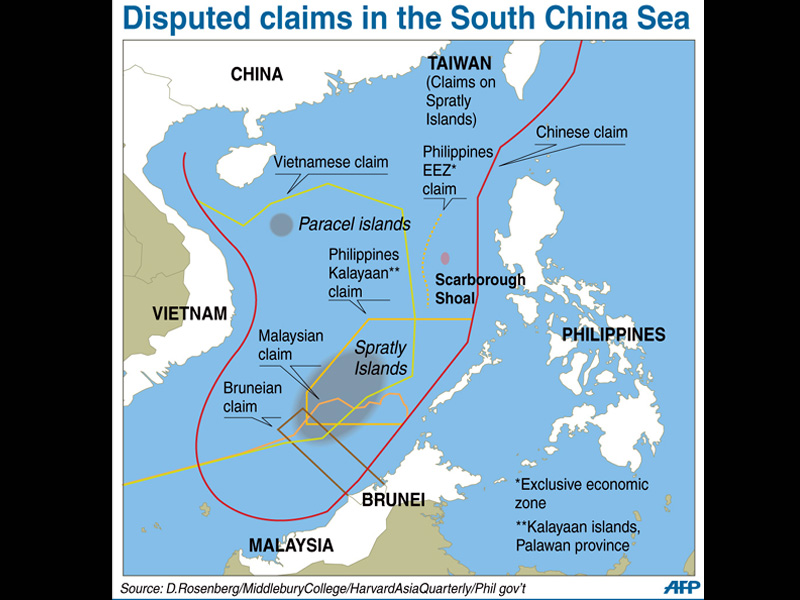
SUPREME Court Justice Antonio Carpio said the United
Nations-backed Arbitration Tribunal practically ignored China’s nine-dash line
in its latest ruling recognizing jurisdiction on the West Philippine Sea (South
China Sea) dispute.
In a forum on the maritime dispute on Thursday night, Carpio
said the tribunal did not consider China’s nine-dash line, within which China
claimed most parts of the West Philippine Sea, in its initial decision to take
jurisdiction of the case.
Carpio said the fact that the tribunal chose to ignore
China’s dash line, its most prominent evidence to show its historic right over
the waters, gives a “peek” of its final decision on the dispute.
“The nine dash line was totally ignored by the
tribunal… That is an indication of how
they will rule. The nine dash line will have no meaning at all,” Carpio said in
the forum attended by journalists, historians and Supreme Court spokesperson
Ted Te.
“I was just trying to give you the mind of the tribunal;
they don’t really consider dash line as material in determining exclusive
economic zone,” Carpio said.
The Philippines scored a victory at the international
Arbitral Tribunal after the panel unanimously decided that it has jurisdiction
over the maritime dispute between China and the Philippines involving parts of
the South China Sea (West Philippine Sea).
The decision means that the tribunal, convened under the
provisions of the United Nations Convention on the Law of the Sea (UNCLOS),
will hold further hearings to settle the increasingly contentious dispute.
A nine-page press release issued by the Permanent Court of
Arbitration “on behalf of the Arbitral Tribunal in the Philippines v. China
arbitration” clarified that the dispute was not about sovereignty, as China has
claimed.
“This arbitration concerns the role of ‘historic rights’ and
the source of maritime entitlements in the South China Sea, the status of
certain maritime features in the South China Sea and the maritime entitlements
they are capable of generating, and the lawfulness of certain actions by China
in the South China Sea that are alleged by the Philippines to violate the
Convention,” it said.
The panel concluded that it had jurisdiction over the case.
“The Tribunal’s Award of today’s date is unanimous and concerns
only whether the Tribunal has jurisdiction to consider the Philippines’ claims
and whether such claims are admissible. The Award does not decide any aspect of
the merits of the Parties’ dispute. In its Award, the Tribunal has held that
both the Philippines and China are parties to the Convention and bound by its
provisions on the settlement of disputes. The Tribunal has also held that
China’s decision not to participate in these proceedings does not deprive the
Tribunal of jurisdiction and that the Philippines’ decision to commence
arbitration unilaterally was not an abuse of the Convention’s dispute
settlement procedures,” the panel said.
The tribunal expects to “render its Award on the merits and
remaining jurisdictional issues in 2016.”
source: Philippine Daily Inquirer
No comments:
Post a Comment